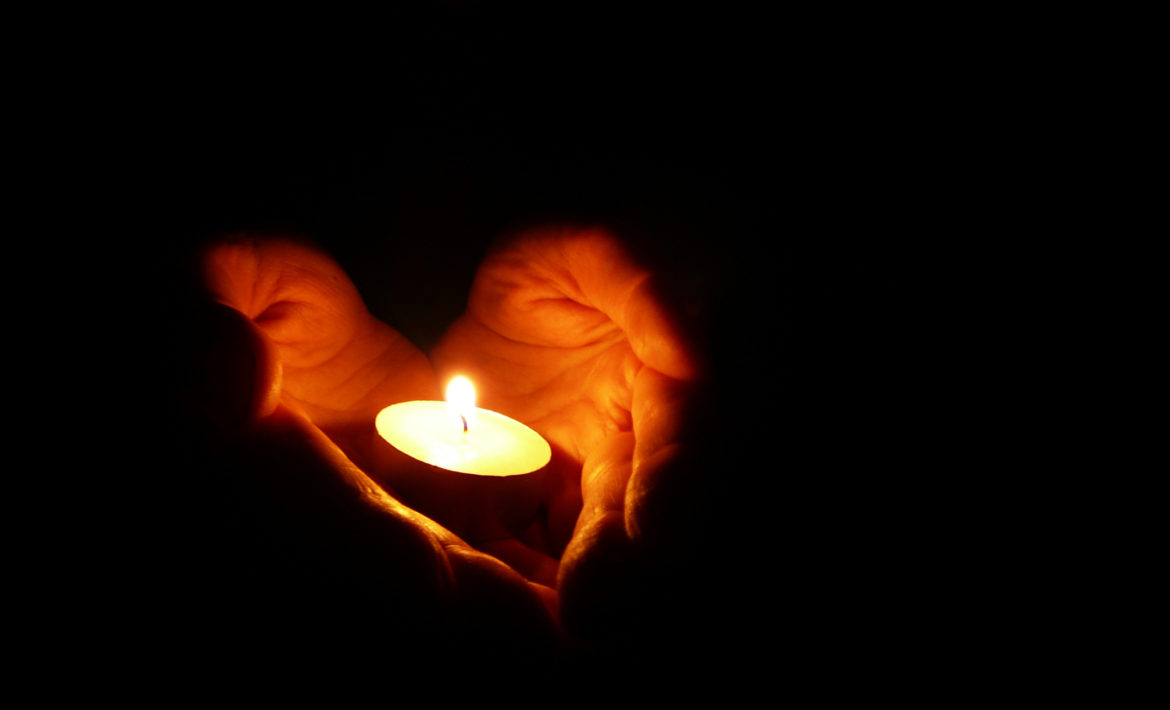
Preppers, Profiteers, and Neighbors
Back when I was teaching in Martinique, I would occasionally show my students clips from the National Geographic Channel’s Doomsday Preppers, the show that documented a variety of paranoid planners convinced that the world was going to end and that they were going to be ready for it. The show certainly helped spark a few laughs, and led to some interesting discussions among my students, who, by the end of the series, were wondering if Americans weren’t all a little crazy.
That was in early 2013. Flash forward seven years and many of the same people who were poking fun at the “preppers” back then, are now duking it out over toilet paper in the aisles of any given grocery store. We’ve all seen the news, and especially the memes on social media, with pictures of mobs in the stores and the empty shelves left in their wake. Shortly after TP memes became the joke du jour, pictures surfaced of a man in Tennessee sheepishly standing in front of a garage full hand sanitizer, face masks, and yes, toilet paper. Thanks to the New York Times, the Colvin brothers became the face of a new class of pandemic profiteers, snatching up supplies in the hopes of reselling them online for a huge profit. The scheme worked for a short while, until Amazon and eBay blocked the sale of sanitary supplies, leaving the brothers stuck with a garage full of goods and an irate public ready to pillage it. They, and others like them, temporarily became some of the most hated people in America.
While Twitter and other online platforms were boiling over with rage, as they tend to do, another article surfaced in the National Review, not defending the profiteers themselves, but more the principles the profiteers were acting on. The article, titled “There’s No Such Thing as Price Gouging”, argued that had regular stores raised their prices according to the surge in demand, we would have avoided the locust- like swarms at the stores. Restrained by the cost, people would have bought only what they needed and left the rest on the shelves. The profiteers naturally stepped in where the stores failed to. The writer found it ironic that many of us reacted with anger towards the Colvin brothers, who scarf up everything they can find and stash it in their garages until they can sell it elsewhere, only to react with indifference or amusement towards the hoarders, who scarf up everything they can find and stash it in their garages, indefinitely. Profiteers make the item available, although for a higher price; hoarders make it unavailable at any price.
It was all fine food for thought, but I’m not sure that debates over price controls and free markets belong in a church newsletter. I have some friends that say Jesus must have been a socialist and others who say that unrestricted capitalism is the only system compatible with Christianity. That debate doesn’t belong here either. The Bible doesn’t use any of that terminology. It doesn’t really talk about profiteers or hoarders either. Proverbs brings up sluggards and ants, but much more than any of these, the Bible talks about neighbors.
“For the whole law is fulfilled in one word: You shall love your neighbor as yourself.” (Gal 5:14) When Paul wrote those words to the church in Galatia, he was simply echoing what Jesus had told his followers earlier. When the Pharisees came to ask which commandment was the greatest, Jesus didn’t pick one of the 10. He summed them all up in two instructions: Love God more than anything and love your neighbor as yourself. The greatest commandments are the simplest of laws. When we don’t keep those primary laws, we must compensate with layer upon layer of more complicated, restrictive laws. In response to the publicity surrounding the profiteers, states are putting forward new anti-price gouging regulations. These laws will be debated, legislated, rolled out, and quite possibly, when this crisis is all over, regretted, and then the process will be repeated. In response to the hoarders, stores are placing limits on the amount of supplies people can buy at one time. It’s common practice to ration sales items, and these rules may not be as involved as state level legislation, but they still need to be developed, implemented, and enforced. Together, the laws and rules cost time, money, and human capital that could be invested elsewhere.
Until recently, the Colvin brothers had the legal freedom to buy supplies and resell them as they pleased. Likewise, the hoarders that mobbed the shelves had every right to purchase as much as they felt was necessary. Galatians 5:13 tells us to not use our “freedom as an opportunity for the flesh, but through love serve one another.” Both groups used their freedom to serve themselves. Now those privileges have been taken away.
Americans (and every other people on earth) have had a very hard time learning to love their neighbor. In return, we had to forfeit peace and prosperity for a bloody civil war, and self-rule rule for martial law across the south afterwards. Even then, we still couldn’t figure out how to love our neighbors, so the government had to decide for us who could shop in our stores, who could drink out of our water fountains, or sit at our lunch counters. No one imagined then, that a generation later, those same laws would be used to determine what kind cakes we have to bake, and what kind of weddings we have to celebrate, or what kind of adoptions we have to facilitate. From the aisles of the grocery store to the halls of the Supreme Court, the cost of not loving our neighbor is almost infinite. And from the ancient Israelites to modern day America, every time we reject God’s law, we find a more oppressive law in its place.
Well. The Doomsday Preppers are finally getting their moment in the sun. Were they a little crazy? Maybe. If nothing else, they seemed to have vivid imaginations and plenty of time and money to play with. Nothing wrong with that. Were the pandemic profiteers clever and enterprising? Clearly. Nothing wrong with that either. Were the hoarders paying attention and planning ahead? So far, so good. The thing with all of these groups, though, is that they were motivated by a me-first desire for selfish gain. None of them was loving their neighbor.
As this Corona virus crisis unfolds, I suspect we’ll see our share of selfish, unloving behavior. I also believe we will see some amazing examples of people loving their neighbor. For some, like first responders, the doctors and nurses, and grocery store workers, it will look like getting close and being available, despite the risks. For many others, it will look like hiding out and keeping our distance, even when it is annoying and frustrating.
Pandemics and disease have existed ever since Adam and Eve set foot outside the Garden. Thankfully, from the Roman Plagues to the Black Death to the Spanish Flu, and Ebola, the church has a history of loving its neighbor during hard and dangerous times. We know that God is in control of this, and he will somehow use it for his glory. If we are God’s people, then his purposes will include each one of us, too. What that will look like exactly, we don’t know, but we do know where to start. It will start with loving God and loving our neighbor. And maybe saving a roll of toilet paper for the person behind us too.
by Ian Bridgman


That was a well-written blog. I will make sure to leave two toilet papers now. Tell Tom the man who would not have gotten married until Tom convinced him to stop painting the porch railing and get ready for the wedding said hi.
I see Samaritan’s Purse’s hospital in New York City and know that some Christians are living out their faith and love amid the COVID -19 pandemic.